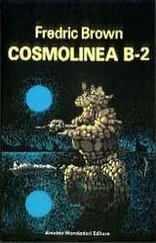Эллен Глазгоу - Barren Ground
Здесь есть возможность читать онлайн «Эллен Глазгоу - Barren Ground» весь текст электронной книги совершенно бесплатно (целиком полную версию без сокращений). В некоторых случаях можно слушать аудио, скачать через торрент в формате fb2 и присутствует краткое содержание. Жанр: Классическая проза, на английском языке. Описание произведения, (предисловие) а так же отзывы посетителей доступны на портале библиотеки ЛибКат.
- Название:Barren Ground
- Автор:
- Жанр:
- Год:неизвестен
- ISBN:нет данных
- Рейтинг книги:3 / 5. Голосов: 1
-
Избранное:Добавить в избранное
- Отзывы:
-
Ваша оценка:
- 60
- 1
- 2
- 3
- 4
- 5
Barren Ground: краткое содержание, описание и аннотация
Предлагаем к чтению аннотацию, описание, краткое содержание или предисловие (зависит от того, что написал сам автор книги «Barren Ground»). Если вы не нашли необходимую информацию о книге — напишите в комментариях, мы постараемся отыскать её.
Barren Ground — читать онлайн бесплатно полную книгу (весь текст) целиком
Ниже представлен текст книги, разбитый по страницам. Система сохранения места последней прочитанной страницы, позволяет с удобством читать онлайн бесплатно книгу «Barren Ground», без необходимости каждый раз заново искать на чём Вы остановились. Поставьте закладку, и сможете в любой момент перейти на страницу, на которой закончили чтение.
Интервал:
Закладка:
Rufus looked up quickly. "Why can't you attend to it yourself?" he demanded in the truculent tone he always used to his elder brother.
Josiah, who had reached the door on his way out, stopped and looked back with a surly expression. With his unshaven face, where the stubby growth of a beard was just visible, and his short crooked legs, he bore still some grotesque resemblance to his younger brother, as if the family pattern had been tried first in caricature.
"I've got as much as I can do over yonder in the east meadow," he growled. "You or Pa will have to look after those planting beds." Rufus frowned while he reached for the last scrap of butter. There would be none for his mother and Dorinda; but if this fact had occurred to him, and it probably had not, he would have dismissed it as an unpleasant reflection. Since he was a small child he had never lacked the courage of his appetite.
"What's the use of my trying to do anything when you and Pa are so set you won't let me have my way about it?" he asked. "I'd have moved those tobacco beds long ago, if you'd let me."
"Well, they've always been thar, son," Joshua observed in a peaceable manner. He stood in the doorway, blowing clouds of smoke over his pipe, while he scraped the caked mud from his boots. His humble, friendly eyes looked up timidly, like the eyes of a dog that is uncertain whether he is about to receive a pat or a blow. "Besides, we ain't got the manure to waste on new ground," Josiah added, with his churlish frown. "We need all the stable trash we can rake and scrape for the fields."
Mrs. Oakley, bringing a plate of fresh cakes as a peace offering, came over to the table. "Don't you boys begin to fuss again," she pleaded wearily. "It's just as much as I can do to keep going anyway, and when you start quarrelling it makes me feel as if I'd be obliged to give up. You'd just as well take all these cakes, Rufus. I can make some more for Dorinda by the time she is ready."
Dorinda, who was eating dry bread with her coffee, made a gesture of exasperated sympathy. "I don't want any cakes, Ma. I'm going to start washing up just as soon as you sit down and eat your breakfast. If you'd try to swallow something, whether you want it or not, your neuralgia would be better."
Mrs. Oakley shook her head, while she dragged her body like an empty garment back to the stove. From the way she moved she seemed to have neither bone nor muscle, yet her physical flabbiness was sustained, Dorinda knew, by a force that was indomitable.
"I don't feel as if I could touch a morsel," she answered, pressing her fingers over her drawn brow and eyes.
"Oh, Rufus can eat his head off, but he'll never work to earn his keep," Josiah grumbled under his breath.
"Well, I'm not a slave, anyway, like you and Pa," Rufus flared up. "I'd let the farm rot before it would be my master."
Josiah had pushed past his father in the doorway. A chill draught blew in, and out of the draught his slow, growling voice floated back. "Somebody's got to be a slave. If Ma didn't slave for you, you'd have to, I reckon, or starwe."
He went out after his father, slamming the door behind him, and Dorinda, hurriedly finishing her breakfast, rose and began to clear the table. The sallow light at the window was growing stronger. Outside, there was the sound of tramping as the horses were led by to the trough at the well, and the crowing in the henhouse was loud and insistent. The day had begun. It was like every other day in the past. It would be like ewery other day in the future. Suddenly the feeling came over her that she was caught like a mouse in the trap of life. No matter how desperately she struggled, she could never escape; she could never be free. She was held fast by circumstances as by invisible wires of steel.
Several hours later, when she started to the store, the trapped sensation vanished, and the gallant youth within her lifted its head. There was moisture that did not fall in the air. A chain of sullen clouds in the west soared like peaks through a fog. Straight before her the red road dipped and rose and dipped again in the monotonous brown of the landscape. A few ragged crows flapped by over the naked fields.
Turning at the gate, which was never closed, she looked back at the house huddled beneath its sloping shingled roof under the boughs of the old locust trees. The narrow dormer-windows stared like small blinking eyes, shy and furtive, down on the square Georgian porch, on the flagged walk bordered by stunted boxwood, on the giant lilac bushes which had thriven upon neglect, and on the ruined lawn with its dead branches and its thicket of unmown weeds. In recent years the white-washed walls had turned yellow and dingy; the eaves were rotting away where birds nested; and in June the empty chimneys became so alive with swallows that the whole place was faintly murmurous, as if summer stirred in the dead wood as well as in the living boughs.
Whenever she looked back upon it from a distance, she was visited again by the image of the house as a frightened thing that waited, shrinking closer to the earth, for an inevitable disaster. It was, as if the place had preserved unaltered a mood from which she herself had escaped, and occasionally this mood awoke in her blood and nerves and flowed through her again. Recollection. Association. It was morbid, she told herself sternly, to cherish such fancies; and yet she had never been able entirely to rid her memory of the fears and dreads of her childhood. Worse than this even was the haunting thought that the solitude was alive, that it skulked there in the distance, like a beast that is waiting for the right moment to spring and devour.
Bleak, raw, wind-swept, the morning had begun with a wintry chill. The snow of yesterday was gone; only an iridescent vapour, as delicate as a cobweb, was spun over the ground. Already, as she turned and went on again, the light was changing, and more slowly, as if a veil fluttered before it was lifted, the expression of the country changed with it. In the east, an arrow of sunshine, too pallid to be called golden, shot through the clouds and flashed over the big pine on the hill at the back of the house. The landscape, which had worn a discouraged aspect, appeared suddenly to glow under the surface. Veins of green and gold, like tiny rivulets of spring, glistened in the winter woods and in the mauve and brown of the fields. The world was familiar, and yet, in some indescribable way, it was different, shot through with romance as with the glimmer of phosphorescence. Life, which had drooped, flared up again, burning clear and strong in Dorinda's heart. It had come back, that luminous expectancy, that golden mist of sensation. "Don't forget me. I shall see you soon," repeated an inner voice; and immediately she was lost in an ecstasy without words and without form like the mystic communion of religion. Love! That was the end of all striving for her healthy nerves, her vigorous youth, the crown and the fulfilment of life! At twenty, a future without love appeared to her as intolerable as the slow martyrdom of her mother.
Beyond the gate there was the Old Stage Road, and across the road, in front of the house, ran the pasture, with its winding creek fringed by willows. Though this stream was smaller than Gooseneck Creek on the Greylocks' farm, the water never dried even in the severest drought, and a multitude of silver minnows flashed in ripples over the deep places. For a quarter of a mile the road divided the pasture from the wide band of woods on the left, and farther on, though the woods continued, the rich grass land was fenced off from several abandoned acres, which had been once planted in corn, but were now overgrown with broomsedge as high as Dorinda's waist. Sprinkled over the fields, a crop of scrub pine, grown already to a fair height, stood immovable in the ceaseless rise and fall of the straw. Though her eyes wandered over the waste ground as she passed, Dorinda was blind to-day to the colour and the beauty. What a pity you could never get rid of the broomsedge, she thought. The more you burned it off and cut it down, the thicker it came up again next year.
Читать дальшеИнтервал:
Закладка:
Похожие книги на «Barren Ground»
Представляем Вашему вниманию похожие книги на «Barren Ground» списком для выбора. Мы отобрали схожую по названию и смыслу литературу в надежде предоставить читателям больше вариантов отыскать новые, интересные, ещё непрочитанные произведения.
Обсуждение, отзывы о книге «Barren Ground» и просто собственные мнения читателей. Оставьте ваши комментарии, напишите, что Вы думаете о произведении, его смысле или главных героях. Укажите что конкретно понравилось, а что нет, и почему Вы так считаете.










![Эллен Дедженерес - Кроме шуток [Как полюбить себя, продать дуршлаг дорого, прокачать мозг с помощью телешоу и другие истории от Эллен Дедженерес] [litres]](/books/384873/ellen-dedzheneres-krome-shutok-kak-polyubit-sebya-p-thumb.webp)

